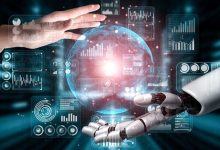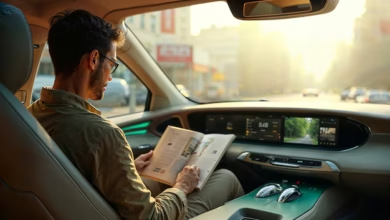The Rise of Artificial Intelligence In Daily Life

Artificial Intelligence (AI) is part and parcel of our lives nowadays. What was once a science fiction concept, AI is now making everything from our smartphones to our home appliances run. From issuing voice commands with Siri and Alexa, getting recommendations on Netflix tailored to our tastes, to availing the services of AI-powered customer support chatbots, the touch of AI is everywhere.
As staggering as its acceleration has been, there are not many who fully grasp how much better ordinary tasks become with AI, making them easier and more efficient. This article looks at the rise of AI in daily uses and how it’s affecting our work and lives.
AI in Personal Devices
One of the most obvious influences of AI in our daily life is through our own devices. Smartphones, smartwatches, and even fitness trackers are packed with features driven by AI.
- Voice Assistants: AI-based virtual assistants like Apple’s Siri, Google Assistant, and Amazon Alexa understand natural language and help users set reminders, send messages, control home appliances, and search for data without having to use their hands.
- Predictive Text & Autocorrect: Whether you’re composing an email or sending a text, AI helps improve accuracy by suggesting words, correcting spelling errors, and even predicting what you’re likely to type next.
- Facial Recognition: Many smartphones now use AI-powered facial recognition technology for security, replacing traditional passwords with a more seamless way to unlock devices.
AI in Smart Homes
The smart home trend is another example of simplifying life with AI. AI drives home automation systems to adapt based on people’s routines and conserve energy.
- Smart Thermostats: Devices like Nest and Ecobee learn individuals’ routines and adjust temperatures to conserve energy but maintain comfort.
- AI-Driven Security Systems: Security cameras nowadays use AI for facial recognition and motion detection, which alerts homeowners to danger.
- Smart Lighting & Appliances: With AI, homeowners can program the lights, coffee machines, and even the fridge to run based on their daily routines.
AI in Online Shopping & Business
Shopping and doing business have also been transformed through AI. Online shopping sites use AI to provide customers with a sense of personalized treatment, improve customer service, and streamline operations.
- Recommendation Engines: Internet sites like Amazon and eBay monitor user behavior and suggest products that are relevant to their interests.
- Chatbots & Virtual Assistants: The majority of businesses today use AI-powered chatbots for real-time customer service, responding to common questions, and resolving issues without human interaction.
- Fraud Detection: Banks and financial institutions use AI to detect suspicious transactions and prevent fraud by interpreting patterns in financial transactions.
AI in Creative & Printing Services
Even creative sectors have adopted AI to streamline processes and provide innovative solutions. From designing graphics to printing materials, AI software makes processes more efficient and accessible.
For instance, when you need print card online, AI-powered design websites can generate templates, suggest layouts, and even change color schemes to generate professional-grade results. This ensures effortless design of personalized cards for events, branding, and marketing needs without necessarily possessing expertise in designing.
AI in Healthcare
The healthcare industry has also been greatly boosted through AI technology, which has improved patient care, diagnosis, and treatment procedures.
- Medical Imaging: AI technology assists doctors in diagnosing disease with more accuracy and speed using X-rays, MRIs, and CT scans.
- Virtual Health Assistants: AI-based health chatbots allow patients to book appointments, take medication, and answer frequently asked health-related questions.
- Wearable Health Devices: Smartwatches and fitness trackers track heart rate, sleep, and exercise and offer valuable health information, even alerting patients to potential issues.
AI in Transportation
Autonomous cars and AI-powered navigation systems are two of the most futuristic applications of AI that are already becoming a reality.
- Autonomous Vehicles: Companies like Tesla, Waymo, and Uber are developing autonomous vehicles that use AI to interpret their surroundings and navigate roads safely.
- Traffic Prediction: Google Maps and Waze use AI to scan real-time traffic conditions and suggest the shortest routes to help users save time.
- Optimization of Ridesharing: AI allocates riders to drivers, determines fares, and predicts demand patterns for rideshare services like Uber and Lyft.
The growing application of artificial intelligence in everyday life is revolutionizing the way we interact with technology. From personal devices and smart homes to medicine and transportation, AI is simplifying life, making it more efficient, and more secure. With AI continuing to evolve, its integration into daily activities will continue to become smoother, opening new doors for innovation and improvement.
While others might be concerned about AI displacing jobs, its actual strength is in augmenting human abilities and streamlining redundant tasks to let us concentrate on creativity, problem-solving, and decision-making at a higher level. As AI progresses, adopting its advantages will enable individuals and companies to succeed in this technology-driven world.





